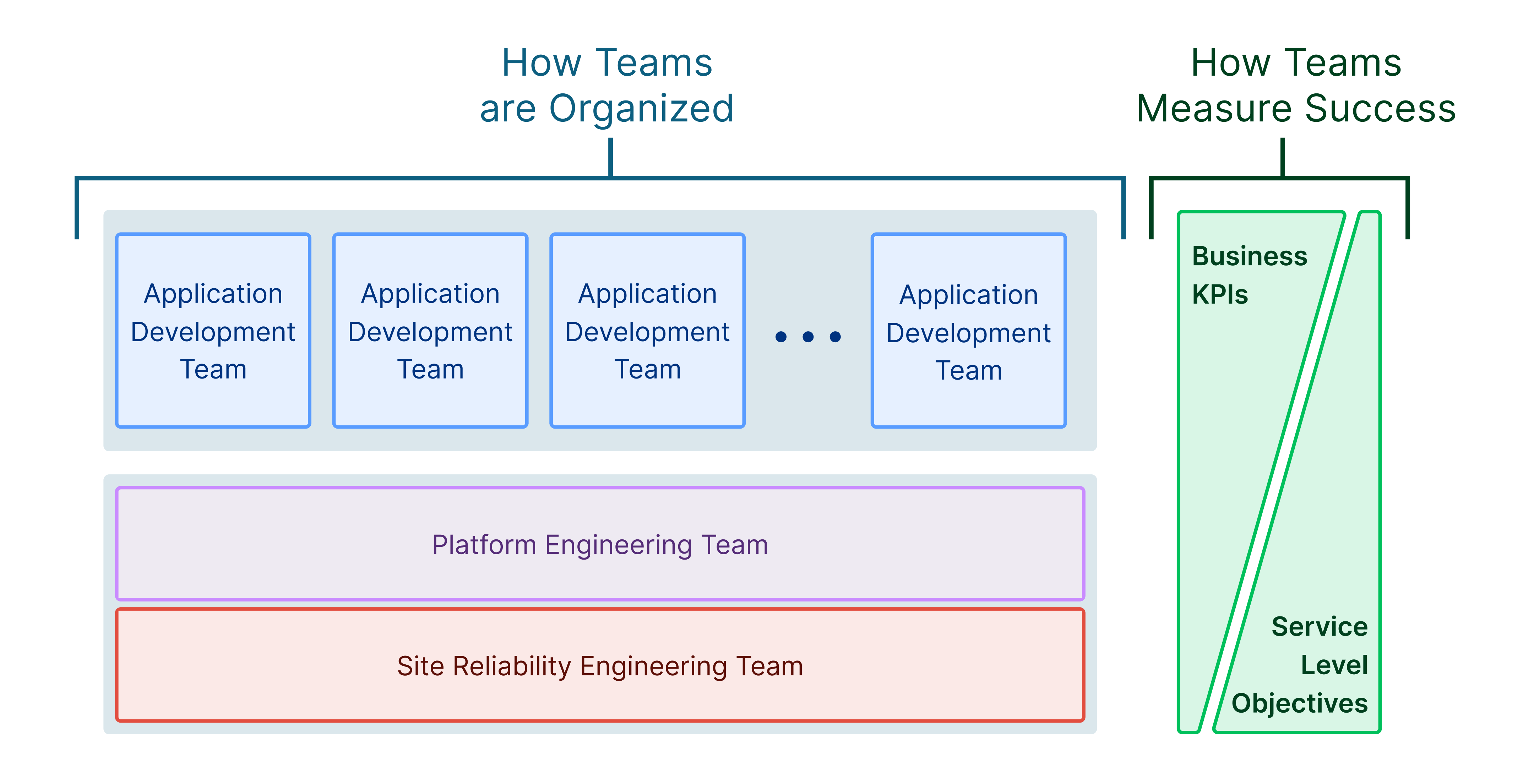
How application teams are organised
Organisation chart showing that multiple application teams are supported by both Platform Engineering and Site Reliability Engineering teams. Application teams measure success with business KPIs. Platform and SRE teams measure success with SLOs
- Author: Ambassador Labs
- Full Title: SRE vs. Platform Engineering
- Date Published: 2019-02-14
- Date Read: 2023-10-06
Notes
- Cloud Native Applications rely on foundational building blocks including; observability, continuous delivery, and containerisation.
- Cloud Native Application development emerged inline with the shift from large capability centric teams to smaller independent product teams.
- Examples of large capability centric teams include; operations, architecture, security, testing, development, and release management.
- Application development teams require the support of both Platform Engineering and Site Reliability Engineering (SRE).
- Platform Engineering and SRE are often conflated, possibly because they both fulfil functions once fulfilled by operations teams.
- The focus of Platform Engineering is on the application development lifecycle with a view to accelerating predictable application delivery.
- The focus of Site Reliability Engineering is on application reliability with a view to reliable operations.
- Both Platform Engineering and SRE share some common principles including; self service, platform engineering, reduction of toil.
- Site Reliability Engineering and Platform Engineering attract different personality types.
- Site Reliability Engineers are drawn to crisis management.
- Platform Engineers are drawn to uninterrupted work on complex problems.
Take Away
It is common to conflate both Platform Engineering and Site Reliability Engineering. To some extent this is understandable as they both perform functions once performed by Operations teams. Both disciplines have a different focus, and although they share common approaches and principles, the teams draw on differing personality types. Trying to use the same engineers to provide both capabilities may not be the most productive.